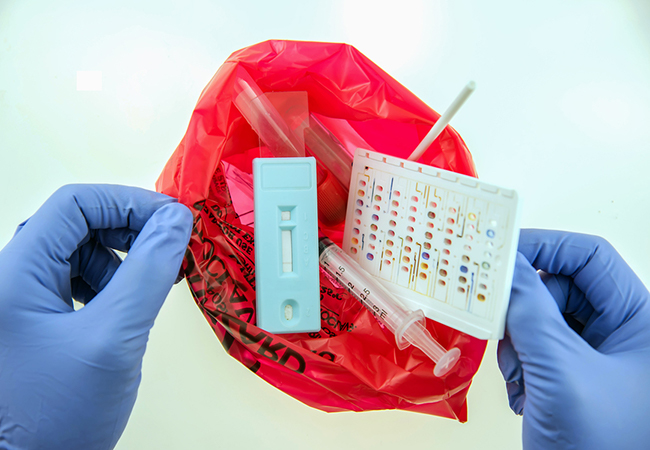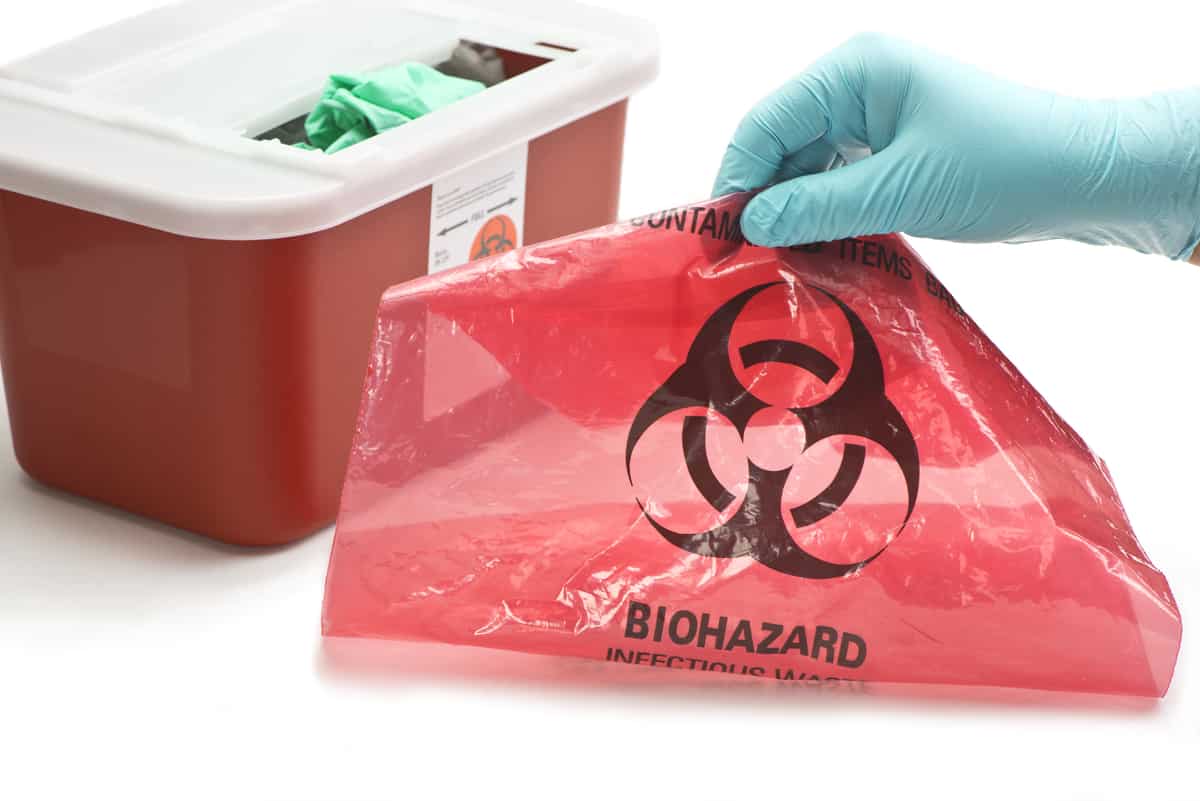Community Care: Seamless and Reliable Medical Waste Removal Near Me
Wiki Article
Stay Ahead of Laws: Professional Suggestions on Medical Waste Disposal
In a globe where the healthcare market is regularly advancing, it is crucial for clinical centers to stay ahead of policies when it pertains to the appropriate disposal of clinical waste. With stringent standards and frequent regulative adjustments, it can be testing to browse the complexities of this procedure. However, with professional recommendations, centers can guarantee conformity and mitigate threats linked with inappropriate waste disposal. From recognizing the various groups of medical waste to carrying out the ideal collection and partition approaches, this discussion will supply beneficial insights and actionable pointers to help centers stay ahead of guidelines in the ever-changing landscape of clinical waste disposal.Recognizing Medical Waste Categories
Recognizing medical waste categories is essential for correct disposal and management in medical care facilities. Medical waste describes any waste created by healthcare activities that might pose a risk to public health or the atmosphere. It is critical to categorize clinical waste properly to guarantee its safe handling, disposal, transport, and therapy.There are numerous classifications of clinical waste that healthcare facilities need to be aware of. One of the most common classifications include transmittable waste, pathological waste, sharps waste, pharmaceutical waste, and chemical waste. Each group has particular standards and policies for its correct management and disposal.
Contagious waste consists of products polluted with blood or other bodily fluids, such as gloves, gowns, and lab societies. Pathological waste describes human cells, body organs, or body components that require unique handling and disposal. Sharps waste includes utilized needles, syringes, and various other sharp objects that can cause injury and transfer infections. Drug waste consists of run out, extra, or infected medications that require cautious handling and disposal. Finally, chemical waste consists of solvents, anti-bacterials, and other chemical substances made use of in health care facilities.
Staying Up-To-Date With Regulatory Adjustments
Staying current with governing changes is crucial for medical care centers to make sure conformity and appropriate management of clinical waste disposal. medical waste removal service. With guidelines constantly developing, it is crucial for medical care centers to stay updated to prevent penalties, penalties, and potential damage to the atmosphere and public wellnessTo remain ahead of regulative adjustments, health care centers must develop a system for tracking and tracking updates. This can be done by subscribing to regulative e-newsletters, participating in meetings and workshops, and actively taking part in sector associations. Furthermore, facilities ought to mark an employee or team in charge of remaining educated and distributing information to relevant stakeholders.
Regular interaction with regulatory companies is additionally important. Healthcare facilities must establish partnerships with local, state, and federal firms to guarantee they are aware of any kind of changes in regulations that might influence their waste administration techniques. This can be done with regular meetings, involvement in public remark durations, and aggressive interaction with regulative companies.
Moreover, health care facilities must take into consideration partnering with waste management companies that specialize in medical garbage disposal (medical waste disposal services with WasteX). These companies are frequently well-versed in the most up to date laws and can give assistance and support to make certain compliance
Applying Proper Collection and Partition Approaches
To properly take care of medical garbage disposal, health care facilities must establish appropriate collection and partition techniques according to governing standards. Applying these approaches makes certain the safe handling and disposal of potentially hazardous materials, protects the setting, and decreases the threat of infections and injuries to health care employees and the public.
Correct collection and partition techniques entail making use of assigned containers and identifying systems. Medical care centers need to give plainly identified containers for different types of clinical waste, such as sharps, infectious waste, pharmaceutical waste, and non-hazardous waste. These containers must be color-coded and plainly marked to avoid complication and advertise easy identification.
In addition, medical care facilities should train their staff on the proper treatments for gathering and setting apart medical waste. visit this site right here This includes enlightening them on the various kinds of waste, the suitable containers to utilize, and the significance of following laws and standards. Routine training sessions and refresher course programs need to be performed to guarantee that employee remain updated on finest methods.
Additionally, healthcare centers need to develop a system for routine collection and disposal of clinical waste. This might involve partnering with accredited waste monitoring business that specialize in clinical garbage disposal. These business will certainly guarantee that the gathered waste is delivered and thrown away in conformity with regulative demands.
Choosing the Right Disposal Approaches

Incineration is just one of the most reliable and common approaches for dealing with particular sorts of clinical waste, such as pathological waste and sharps. It involves the regulated combustion of waste at high temperature levels, reducing it to ash. Incineration can release damaging contaminants into the air and contribute to air pollution.

Other disposal approaches include chemical therapy, microwave treatment, and landfilling. Chemical treatment involves making use of chemicals to counteract the waste and disinfect. Microwave therapy utilizes microwave energy to heat and sanitize the waste. Landfilling includes burying the waste in a marked land fill location (medical waste disposal services with WasteX). Landfilling needs to be the last hotel due to the potential threat of contamination to soil and groundwater.
Guaranteeing Compliance Through Paperwork and Training
After thoroughly thinking about the proper disposal techniques for helpful hints medical waste, healthcare centers have to make certain conformity with guidelines and lessen environmental impact by executing effective documentation and training treatments. This action is vital in preserving a secure and lasting environment for both medical care employees and the general public.
Training is just as important in making sure conformity with laws. Healthcare workers who take care of medical waste ought to get proper training on waste partition, handling, and disposal procedures. This training should cover subjects such as the appropriate usage of individual safety equipment, identification of various types of waste, and the proper disposal methods for each waste category. By offering detailed training, health care facilities can empower their staff to make educated decisions and reduce the danger of incorrect waste disposal.
Final Thought
In final thought, staying ahead of regulations in clinical garbage disposal is critical for medical care facilities. medical waste removal near me. Recognizing the different groups of clinical waste, staying updated with governing modifications, executing proper collection and partition methods, choosing the ideal disposal techniques, and guaranteeing conformity via paperwork and training are all essential actions. By complying with these guidelines, medical care organizations can properly take care of and dispose of medical waste in a accountable and secure wayFrom understanding the different groups of medical waste to applying the ideal collection and segregation techniques, this conversation will provide workable pointers and important understandings to assist centers stay ahead of laws in the ever-changing landscape of medical waste disposal. - medical waste disposal services with WasteX
The most typical groups consist of transmittable waste, pathological waste, sharps waste, pharmaceutical waste, and chemical waste. Healthcare facilities should offer clearly identified containers for different types of medical waste, such as sharps, contagious waste, pharmaceutical waste, and non-hazardous waste. Health care facilities ought to establish an extensive system to tape-record and track all elements of medical waste disposal, including types of waste generated, quantities, and disposal methods utilized. Health care workers that manage medical waste must get proper training on waste segregation, handling, and disposal procedures.
Report this wiki page